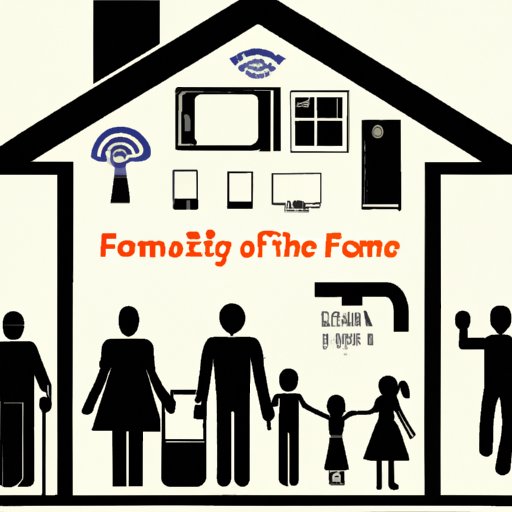An Overview of Households: What They Are and How They Function
A “household” is defined as a group of people who live together in a dwelling and share common responsibilities and activities. These individuals may be related by blood or marriage, or they may simply choose to cohabitate. Households are the basic unit of society, providing a sense of structure and stability. As such, it is important to understand the many different types of households that exist, the activities and responsibilities of each, and their role in society.
The People Who Live in a Household
The members of a household can vary widely depending on the type of household. In a traditional nuclear family household, there is usually a married couple and their children. In a single-parent household, there is only one parent and their children. In a multigenerational household, two or more generations of a family live together under one roof. Shared living arrangements involve unrelated individuals who have chosen to live together for financial or social reasons.
The Activities & Responsibilities of Households
Households provide an environment where individuals can feel safe and secure. The activities and responsibilities of a household depend on its composition but typically include providing meals, managing finances, and caring for children. Households also provide emotional support and serve as a place of refuge and comfort. Overall, a household should be a source of strength and stability for its members.
The Many Different Types of Households
Nuclear family households are the most common type of household in the United States. These households typically consist of married parents and their children. Single-parent households are becoming increasingly common and are headed by one parent who is responsible for all aspects of the household. Multigenerational households involve two or more generations of a family living under one roof. Finally, shared living arrangements involve unrelated individuals who have decided to live together for financial or social reasons.
Exploring the Role of the Household in Society
Households play an integral role in society. They are the foundation of any community, providing a sense of structure and stability. Households also have a significant economic impact on communities, as they contribute to local businesses, taxes, and the overall economy. Additionally, households provide a safe and nurturing environment for children to grow and develop. In this way, households are essential to the health and wellbeing of a community.
A History of Households Through the Ages
Throughout history, households have taken on various forms. Ancient households were typically larger than modern households due to extended family members living together. Medieval households were typically centered around a feudal lord and his retainers. Modern households are smaller, generally consisting of a nuclear family with parents and children.
The Impact of Technology on Households
Technology has had a profound effect on households. From the invention of the telephone to the emergence of the internet, technology has changed the way people interact and communicate within households. Technology has also opened up new opportunities for households, from working remotely to engaging in virtual learning. Technology has revolutionized the way households function.
Examining the Changing Structure of Households Over Time
In recent years, there has been a shift away from the traditional nuclear family model. Alternative household structures, such as single-parent households and shared living arrangements, are becoming increasingly common. This shift has been driven by changing social norms, economic pressures, and advances in technology. As these trends continue, the structure of households is likely to evolve even further in the future.
Conclusion
Households are the cornerstone of any society, providing a sense of structure and stability. While the traditional nuclear family household is still the most common type, alternative structures such as single-parent households and shared living arrangements are becoming increasingly prevalent. Technology has had a major impact on households, opening up new opportunities and changing the way they operate. As the structure of households continues to evolve, it is important to understand their role in society and the various types that exist.


